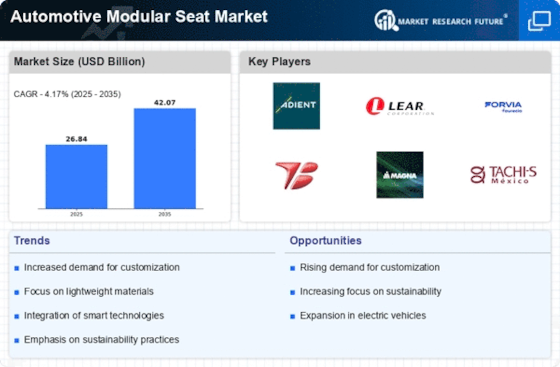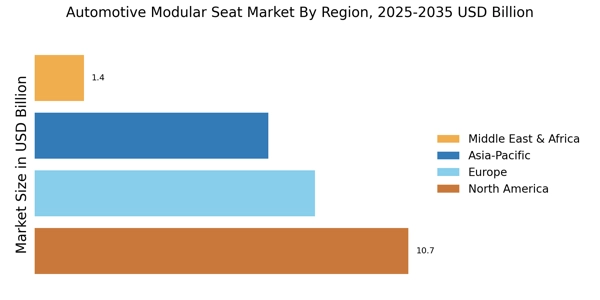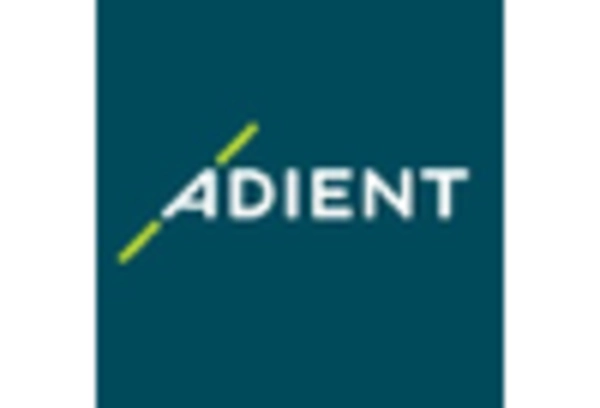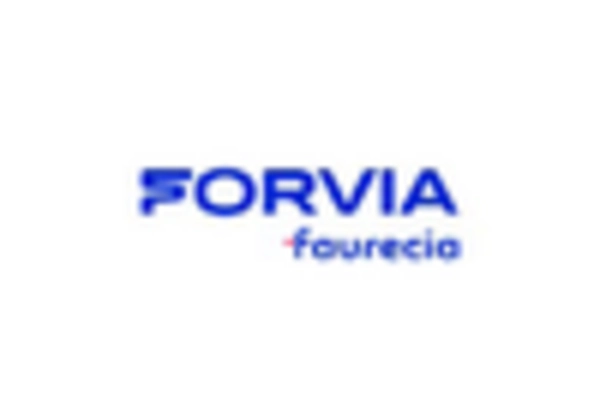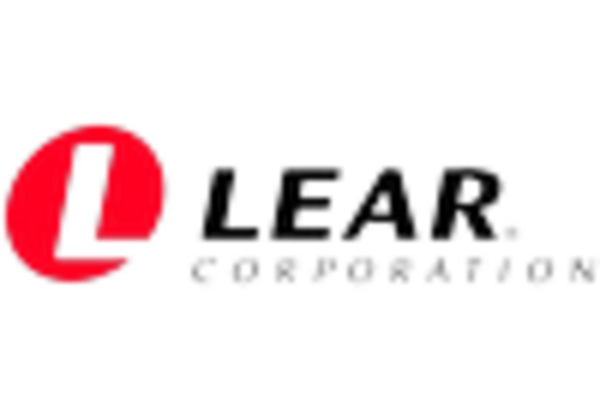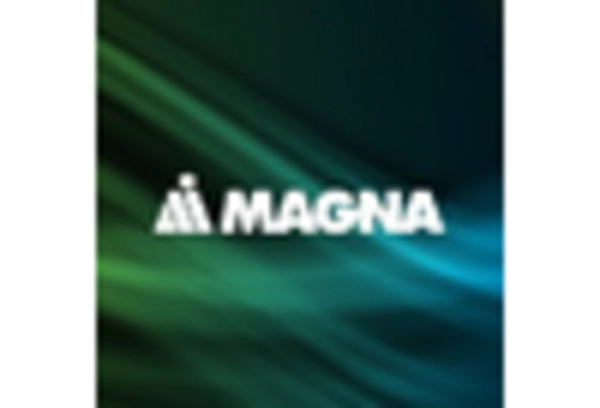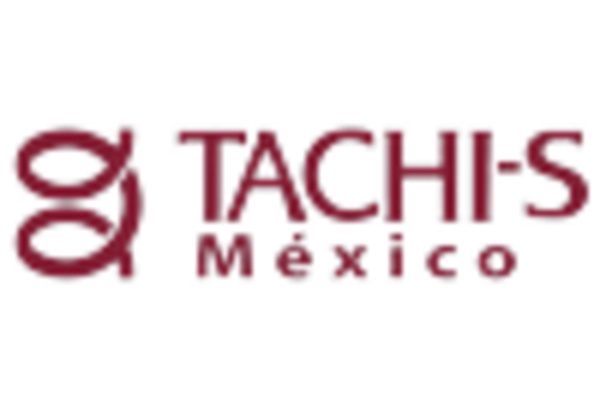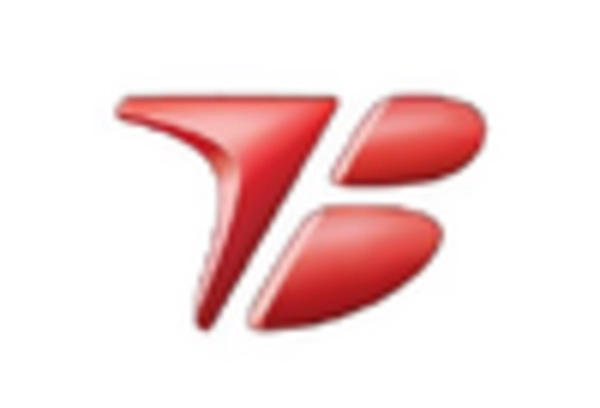Increased Focus on Safety Features
Safety remains a paramount concern in the Automotive Modular Seat Market, with manufacturers prioritizing the integration of advanced safety features. Innovations such as side airbags, adjustable headrests, and integrated seatbelt systems are becoming standard in modular seat designs. The market for automotive safety systems is expected to reach USD 50 billion by 2026, indicating a robust growth trajectory. This emphasis on safety not only enhances consumer confidence but also aligns with regulatory requirements, thereby driving the demand for modular seating solutions that incorporate these features. Consequently, the Automotive Modular Seat Market is likely to benefit from this heightened focus on safety.
Rising Demand for Lightweight Materials
The Automotive Modular Seat Market is experiencing a notable shift towards lightweight materials, driven by the need for improved fuel efficiency and reduced emissions. Manufacturers are increasingly adopting materials such as advanced composites and high-strength steel, which not only enhance the structural integrity of seats but also contribute to overall vehicle weight reduction. According to recent data, the use of lightweight materials in automotive applications is projected to grow at a compound annual growth rate of approximately 5.5% over the next few years. This trend is likely to propel the Automotive Modular Seat Market, as automakers seek to meet stringent regulatory standards while enhancing performance and consumer satisfaction.
Growth of Electric and Autonomous Vehicles
The rise of electric and autonomous vehicles is reshaping the Automotive Modular Seat Market, as these vehicles often require innovative seating solutions that prioritize flexibility and adaptability. With the increasing adoption of electric vehicles, manufacturers are exploring modular seat designs that can be easily reconfigured to accommodate various passenger needs. The electric vehicle market is projected to grow at a CAGR of over 20% in the coming years, which could significantly influence the demand for modular seating solutions. This shift presents an opportunity for the Automotive Modular Seat Market to innovate and cater to the evolving requirements of modern vehicles.
Consumer Preference for Comfort and Ergonomics
As consumer preferences evolve, the Automotive Modular Seat Market is witnessing a growing demand for seats that prioritize comfort and ergonomics. Modern consumers are increasingly seeking seating solutions that provide enhanced support and adjustability, particularly for long journeys. Research indicates that ergonomic seating can reduce fatigue and improve overall driving experience, which is becoming a key selling point for automotive manufacturers. This trend is likely to drive innovation in modular seat designs, as companies strive to create products that meet these comfort demands. Consequently, the Automotive Modular Seat Market is expected to expand as manufacturers respond to this consumer-driven shift.
Technological Advancements in Manufacturing Processes
Technological advancements in manufacturing processes are significantly impacting the Automotive Modular Seat Market. Innovations such as 3D printing and automated assembly lines are streamlining production, reducing costs, and enhancing design capabilities. These technologies allow for greater customization and faster turnaround times, which are essential in meeting the diverse needs of consumers and manufacturers alike. The adoption of such advanced manufacturing techniques is projected to increase efficiency in the automotive sector, potentially leading to a market growth rate of around 4% annually. As a result, the Automotive Modular Seat Market stands to benefit from these advancements, enabling manufacturers to deliver high-quality, innovative seating solutions.


